AUDREY ROSE (1977)
A wealthy New York couple are shocked when a stranger claims their daughter is the reincarnation of his own dead child.
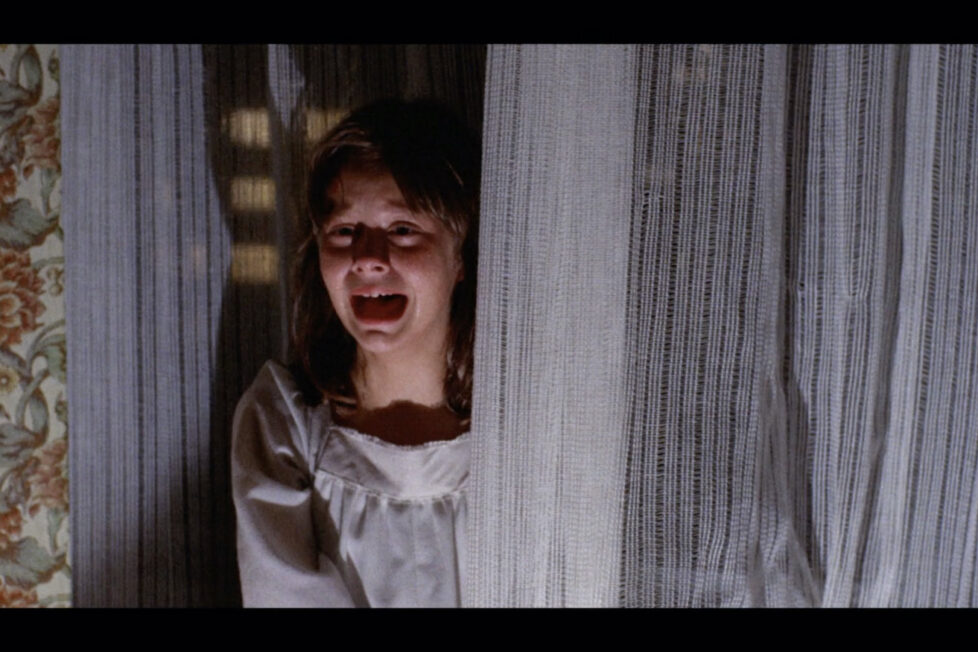
A wealthy New York couple are shocked when a stranger claims their daughter is the reincarnation of his own dead child.


Novelist Frank De Felitta claimed it was his own young son’s sudden, inexplicable fluency in piano playing that led him to write 1975’s Audrey Rose, his novel about reincarnation which became one of the last films directed by the great Robert Wise (The Haunting) and one of the most unusual entries in the 1960s-70s cycle of ‘evil child’ movies. His aforementioned son, Raymond, later suggested his father might have exaggerated the piano incident—but De Felitta was, whatever the truth, clearly smitten by the idea the human soul might persist after death. Although his previous career in fiction and filmmaking hadn’t been focused on the occult, Audrey Rose became a bestseller and as well as adapting it into a screenplay he took an active role as a producer on the film.
It’s no surprise, then, that unlike most of the ‘evil child’ films that had become popular since Roman Polanski’s Rosemary’s Baby (1968), Audrey Rose has the air of a plea for understanding. It’s not just playing supernatural what-ifs to set up some pleasurable scares; the feeling is inescapable that De Felitta (if not Wise) wants us to really believe in reincarnation. Critics at the time were unimpressed, and for good reason: not only do the disquisitions on rebirth sometimes get in the way of the drama they also totally fail as arguments. Audrey Rose never tells us why we should accept reincarnation (a fictional tale isn’t persuasive as evidence), just that we should. The only justification for the theory is that some Asian religions subscribe to it, but again that doesn’t even begin to approach proof!
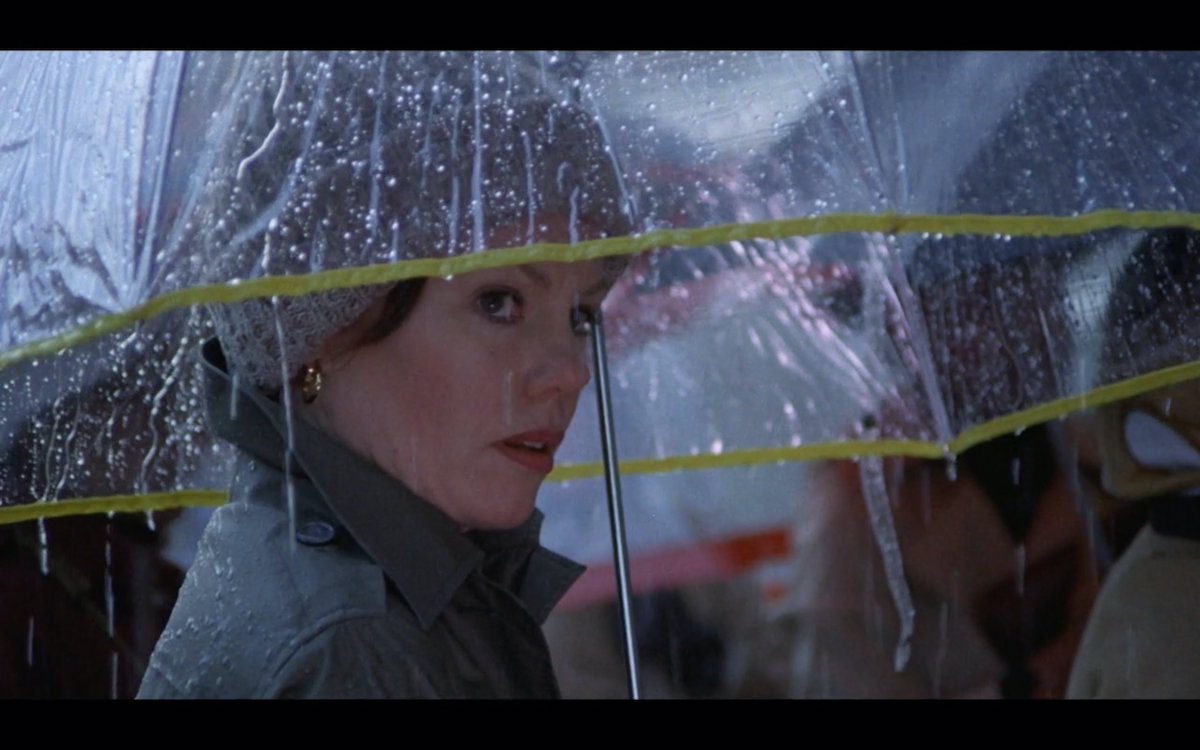
This isn’t the only way Audrey Rose differs from the rest of the subgenre into which it’s usually slotted. Indeed, it’s not really an ‘evil child’ movie at all, as the living girl Ivy may (in a sense) be possessed by the dead girl Audrey Rose, but neither is evil, and both are very much presented as innocent victims. Still, there are times when Wise seems to want to summon up the spirit of films like The Exorcist (1973) visually if not thematically, and there are certainly some common concepts too. The idea of the home as well as the child being invaded by something external, for example.
Also, there wasn’t (and still isn’t) a mainstream ‘reincarnation’ subgenre into which it could fit. While cinema had occasionally explored the subject for decades (as fascinatingly discussed in Lee Gambin’s segment on the Blu-ray extras here), serious treatments were scarce. The Reincarnation of Peter Proud (1975) was a rare recent example but hadn’t become a great success, and lighthearted uses of the premise such as On a Clear Day You Can See Forever (1970) or the forthcoming Heaven Can Wait (1978) were more common.
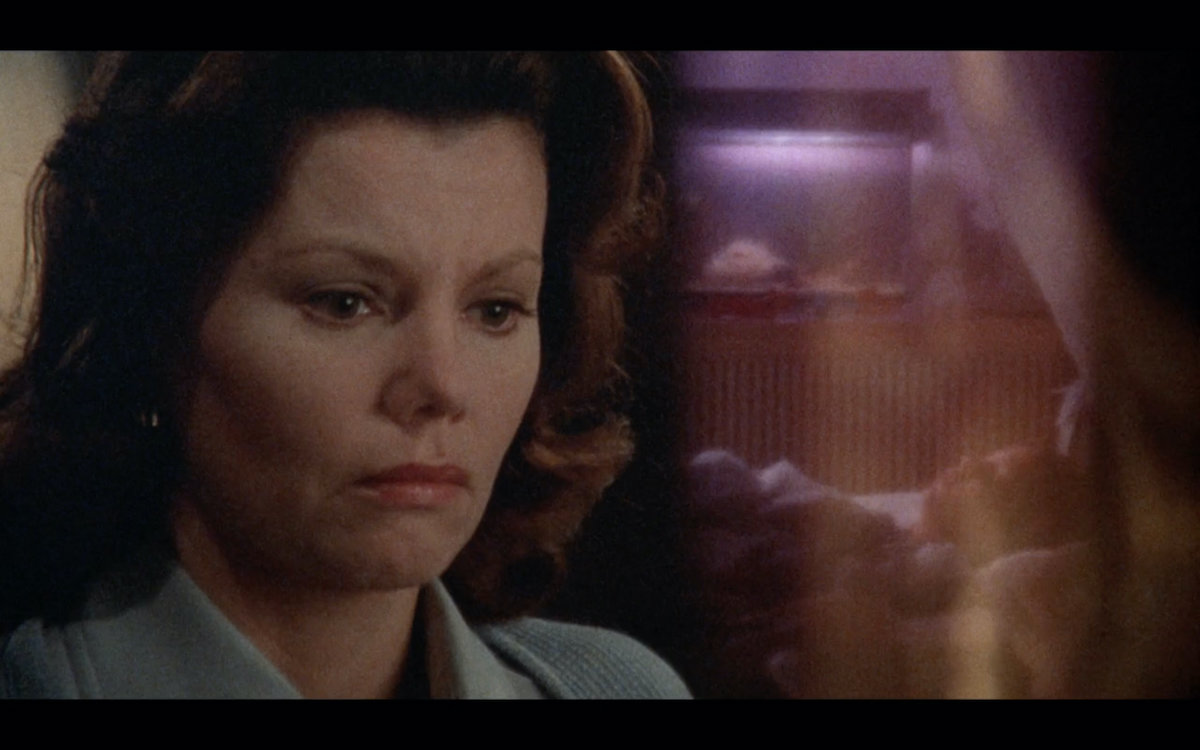
Given its sheer oddity and the difficulty in easily classifying it—is it even horror?—perhaps it’s inevitable that Audrey Rose remains somewhat overlooked. But Wise, who had started out in the 1930s as an editor, worked on Citizen Kane (1941), and then directed 36 movies including West Side Story (1961) and The Sound of Music (1965), but not much horror, handles the strange screenplay skilfully. And the film benefits from strong performances in the four main roles. It has an enduring interest in the philosophical questions it raises, too, bringing them right to the forefront more than most mainstream commercial productions do—even if it does not come close to satisfactorily answering them!
Audrey Rose opens in the mid-1960s with a car crash but soon jumps forward to 1976, where we meet 11-year-old Ivy Templeton (Susan Swift) and her parents Janice (Marsha Mason) and Bill (John Beck), an affluent Manhattan couple whose apparently enviable life is marred by their daughter’s nightmares—which seem especially strong around her birthday. The Templetons are put on edge, too, by a strange man who appears to be following them and hanging around Ivy’s school. Eventually, he contacts them and identifies himself as Elliot Hoover (Anthony Hopkins), whose own wife and daughter died some years ago, in what we now realise was the car crash depicted at the beginning. And after a long investigation, he’s come to the conclusion that Ivy—born at almost exactly the time of his daughter Audrey Rose’s death—is her reincarnation.
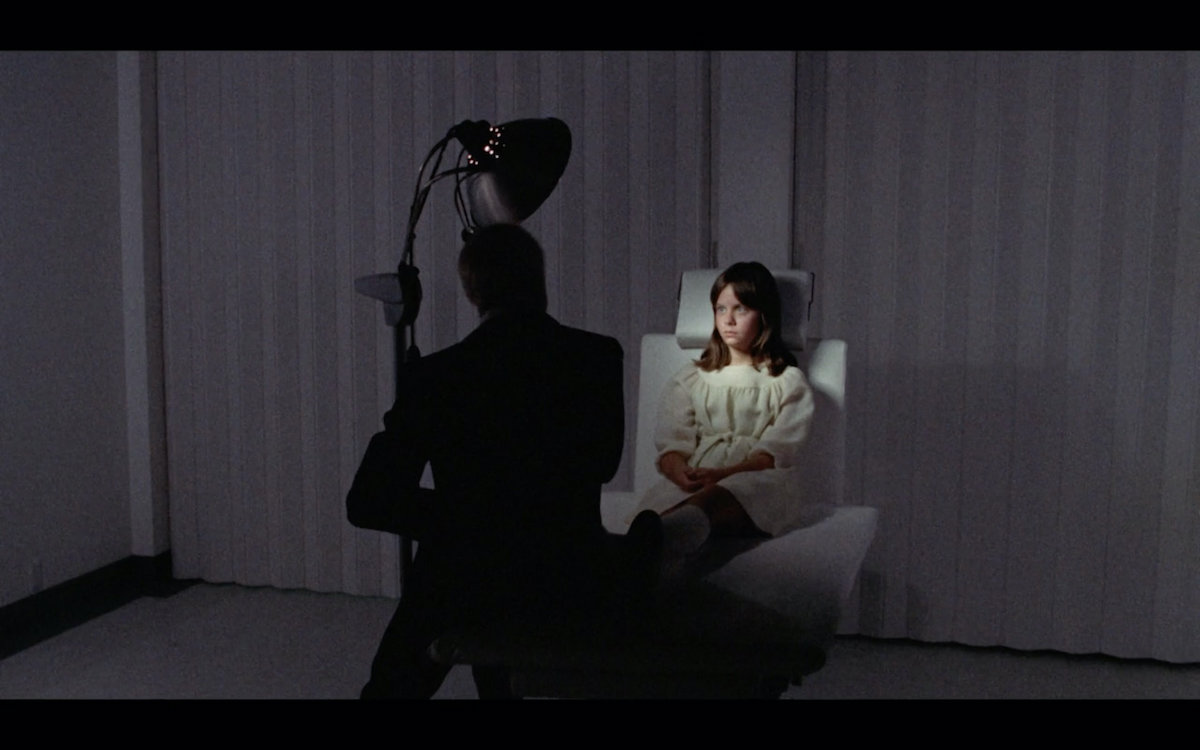
Naturally, the Templetons are sceptical and even angry, though there are things they can’t explain: Hoover seems to have obtained knowledge of their apartment from psychics, and during one of her nightmares Ivy appears to somehow burn her hands on an ice-cold window. (This is one of the relatively few occasions in Audrey Rose where the inexplicable—and possibly supernatural—is directly shown, rather than merely discussed or suspected.) And gradually, despite the Templetons’ resistance, Hoover achieves an entrée into their lives, particularly gaining leverage with Janice when he helps calm Ivy down from a particularly bad nightmare.
This, in turn, leads to increased strain in their marriage (“he was here and you weren’t”, Janice says to Bill when he protests her having accepted Hoover’s help), but the turning point of the movie comes when Hoover goes too far and is arrested. At this point, Audrey Rose suddenly switches from being a psychological horror story to a courtroom drama, although the most important part of the court case actually takes place in a hospital. The abrupt change of mood does not work well, and the court scenes—-in which Hoover’s attorney must convince the jury to accept the reality of reincarnation, and thus Hoover’s claim to parenthood—verge on the risible. At least to a layperson, nothing about it is legally or procedurally credible! For example, a Hindu maharishi (Pakistani actor Aly Wassil) is allowed to philosophise at great length from the witness stand, in a transparent excuse for a lecture to the audience.
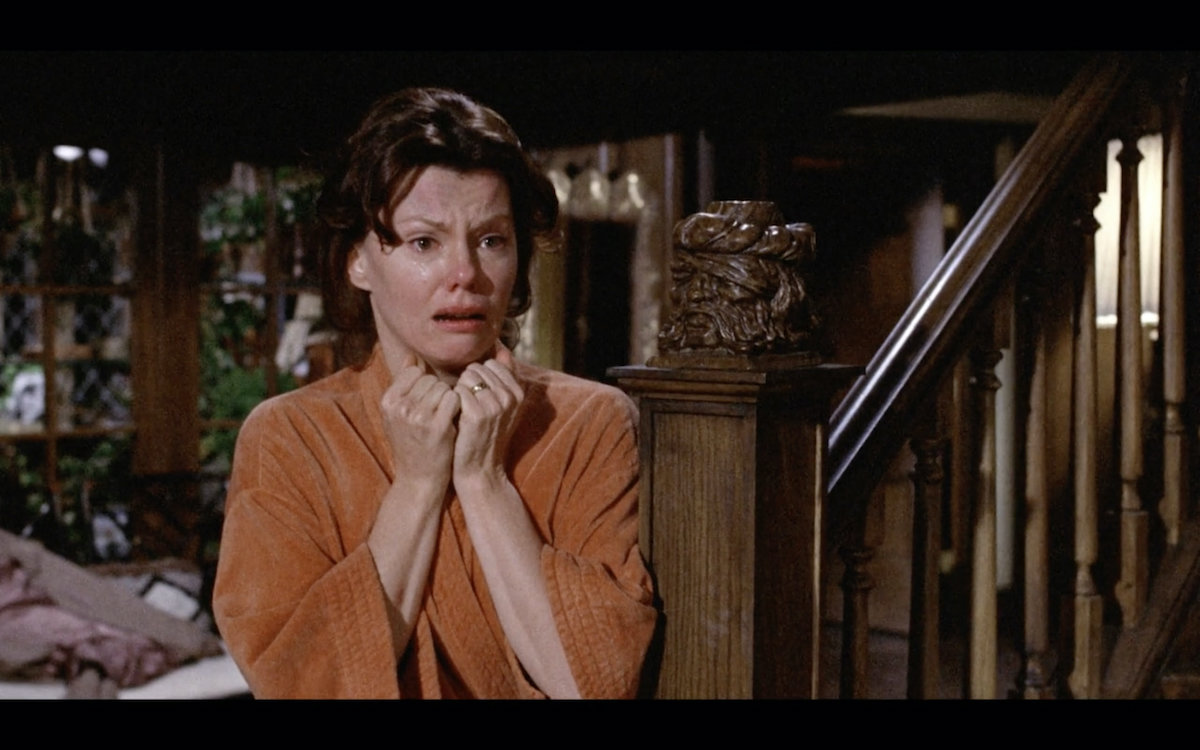
Audrey Rose does return to its earlier, more unsettling tone toward the end, and indeed the climax in the hospital provides one of its most powerful scenes, even if it does avoid explaining some details one might think important. (As at several points in the movie, Wise’s editing background must have influenced his masterful direction here, cutting back and forth from character to character before eventually letting the camera rest meaningfully on a floor scattered with broken glass.)
Earlier on, there are genuinely frightening passages during Ivy’s nightmares, with her uncontrollable crying and shrieking; and Wise, who despite his limited horror credentials has in recent years been retrospectively acclaimed for his direction of the Shirley Jackson adaptation The Haunting, sometimes craft scenes and individual shots in Audrey Rose in a frankly genre way. See, for example, the scene in the upstairs hallway of the Templetons’ apartment where Ivy opens a door behind the family lawyer (Stephen Pearlman) and walks toward the oblivious man from her purple-glowing bedroom. It could easily come from any number of ‘evil child’ exercises, as could the gargoyle on the building’s exterior, while the sequence where Ivy and her classmates dance around a giant snowman melting in a bonfire has a distinctly Wicker Man (1973) air and seems rather pagan for a Catholic school.
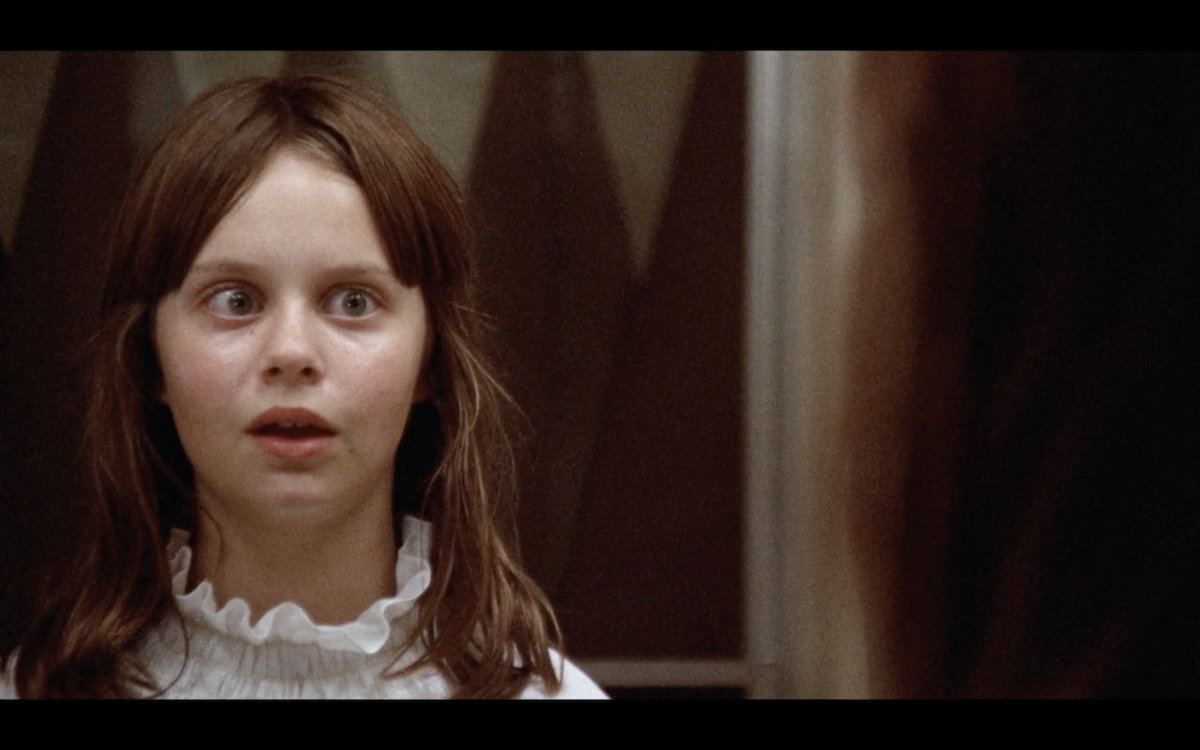
Occasionally, the film falters in striving for effect. In the snowman section, for example, why would Audrey-reincarnated-as-Ivy climb toward the fire, if she’s reliving her death in the car crash where she tried to escape the flames? (And why, for that matter, is the snowman labelled ‘Sylvester XXIII’? Is it a production error and intended to be a reference to the antipope Sylvester III, or perhaps a Catholic in-joke that only a tiny fraction of the audience will get?)
But for the most part, Wise’s unflashy and unhurried direction stays away from such gimmicks. Indeed, many of the most successful aspects of the film are those dealing with the family drama rather than reincarnation itself. The stairs in the Templetons’ apartment are frequently used as handy metaphors, with Janice and Bill walking upstairs into darkness (the unknown lies ahead), or one standing at the top while the other is at the bottom (they disagree).
Complexity in the characters’ relationships isn’t ignored: in one scene Bill’s arm is around his pal the attorney, then he argues with his wife on the stairs, and then he holds her; it is clear that he is torn. He doesn’t share her point of view on reincarnation or on Hoover, and his instincts push him toward the rational outside world, but he doesn’t want to abandon the family either. She, more open-minded in the film’s perspective but more gullible in his, has pondered the problem long herself, as illustrated by a shot of her working on a jigsaw puzzle.
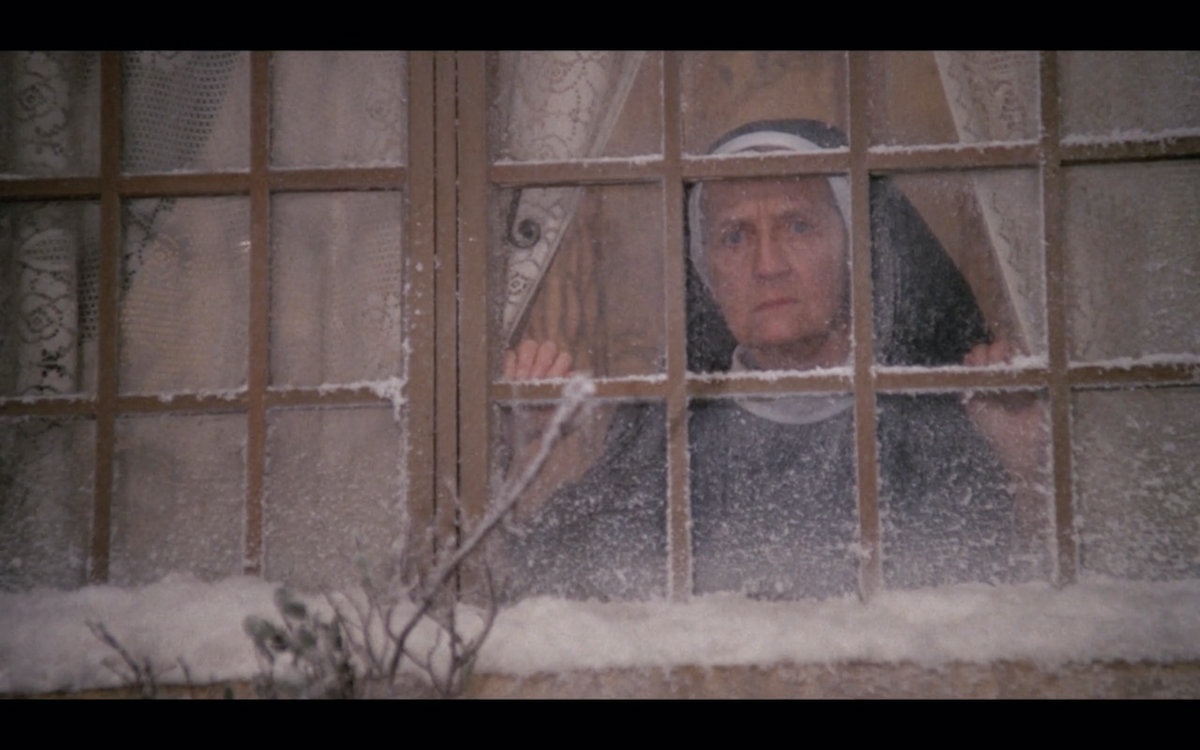
Beck portrays Bill as a sensible, sociable, successful, slightly unimaginative man while Mason’s Janice is much more openly emotional, but both actors avoid going too far: the mother isn’t too histrionic or the father too cold, and as a result, the way the relationship is severely shaken but not destroyed is plausible. Hopkins as Hoover, his nervous movements contrasting with Bill’s comparative immobility, went on to be by far the biggest star of the three and his charismatic dominance of scenes is apparent throughout, although he also gives Hoover a cautious side—the character is well aware that what he is suggesting about the Templetons’ daughter will seem outrageous—and indeed his ominous, silent first appearances in the background are every bit as effective as his major speeches.
As Ivy herself, Swift (who did little big-screen work afterwards) convincingly captures a child’s mixed reactions to a confusing situation; sometimes accepting adult wisdom, sometimes speaking her own mind directly, and then overtaken by convulsions of fear during her nightmares. We see her looking in the mirror saying “Audrey Rose” over and over again, perhaps enticed by the idea of living forever, but she also tells her mother “I’m my own self and I’m not somebody else”, unwittingly highlighting the thorny ontological points that the movie brings up. She has the perfect face for an ‘evil child’, too, an advantage which Wise maximises by dwelling on photos of her.
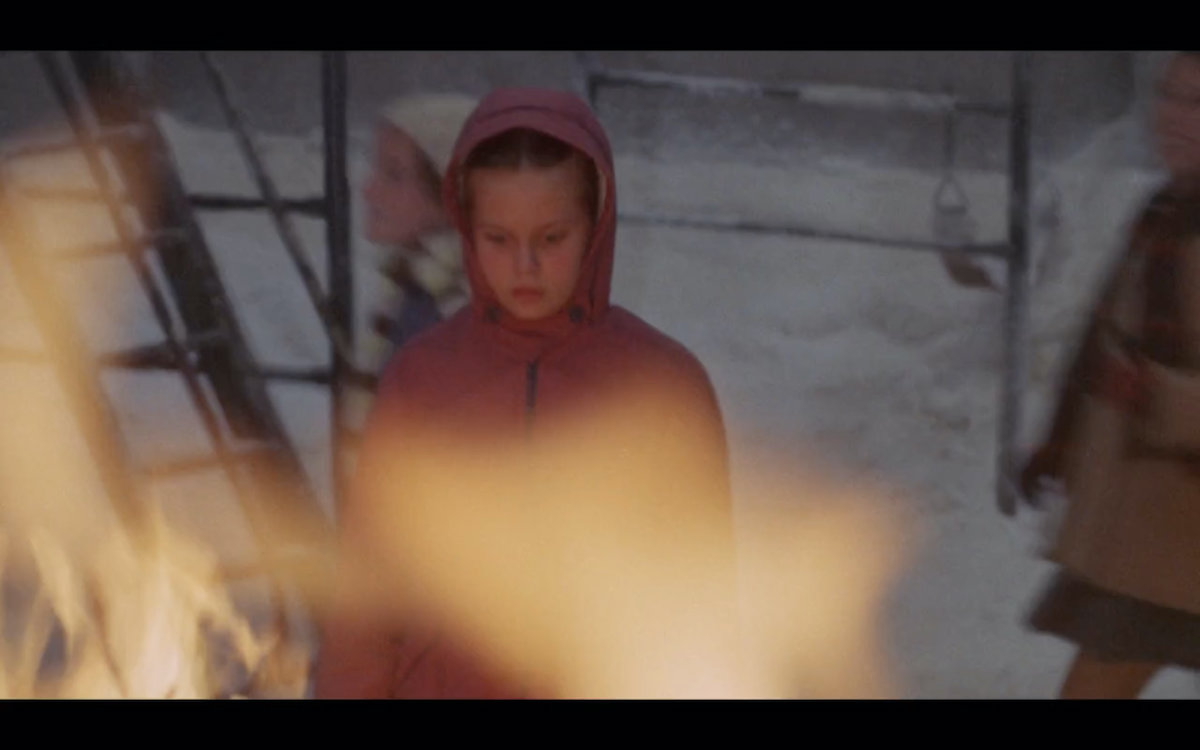
Among the more minor roles, Ivy Jones as the other driver in the car crash which killed Audrey Rose and her mother makes an impactful appearance in the courtroom, while New York locations and Michael Small’s uneasy score, with much use of the waterphone, add a great deal to Audrey Rose’s atmospheric and at times almost believable narrative.
Perhaps less is gained by the footage of Hindu ceremonies (presumably bought-in material, since the end credits don’t mention shooting in south Asia) or the final quotation from the Bhagavad Gita. The film’s literal, face-value acceptance of reincarnation is undoubtedly a problem and it certainly comes too quickly. Although individual characters are allowed to doubt, it’s as if the audience never is; and, lacking all intellectual rigour, Audrey Rose doesn’t provide the answers that it seems to believe it does. Is the girl Ivy or Audrey Rose? Or somehow both? Are they the same girl, or does one “inhabit” the other? What does reincarnation actually mean?
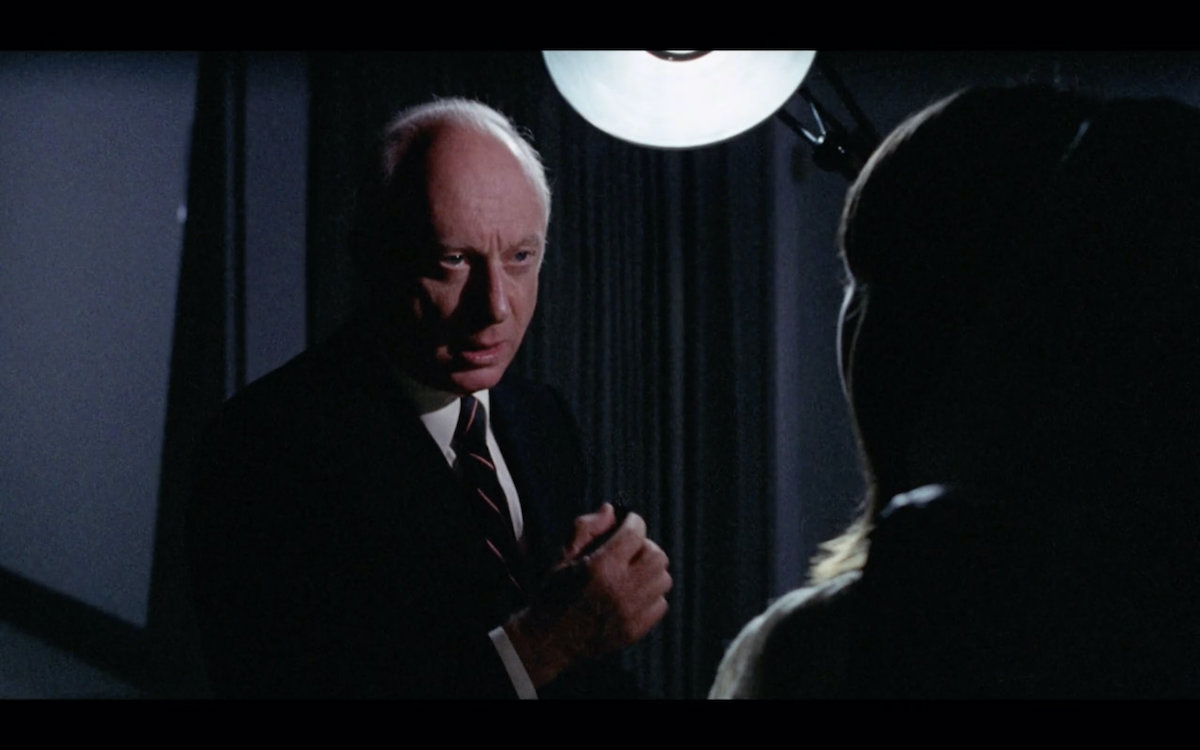
Still, there’s plenty here that’s thought-provoking and dramatically rich. Reincarnation itself is a double-edged sword, both reassuring and unsettling because it offers a promise of life after death but at the expense of a clearly defined self. And it adds an extra element, too, to the inherent emotional impact of any story about the death of a child. It’s difficult not to believe that whatever Hoover gains in rediscovering his daughter will be the Templetons’ loss and vice-versa, and Audrey Rose is less about the offspring and more about the parents than many ‘evil child’ movies.
Plus, of course, any reincarnation story is also a kind of ghost story. To that extent, Audrey Rose does have at least one foot in the horror camp, even if its premise is more extraordinary than horrifying. It might not satisfy those looking for rotating-head scares, and it certainly won’t satisfy anyone expecting a thoughtful look at the concept of reincarnation, but as an attempt to blend a popular horror subgenre with the mellower Eastern-influenced spirituality of the 1970s, it is an unforgettably peculiar movie—not least because such an unpromising script is so well directed and acted. There are some exceptionally good extras on this Blu-ray release, too.
USA | 1977 | 113 MINUTES | 1.85:1 | COLOUR | ENGLISH


director: Robert Wise.
writer: Frank De Felitta (based on his novel).
starring: Marsha Mason, Anthony Hopkins, John Beck & Susan Swift.
